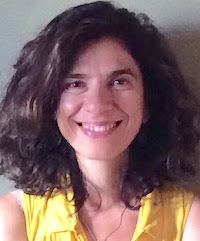Reem Yassawi
Institut Camille Jordan (ICJ), Villeurbanne
https://www.researchgate.net/scientific-contributions/Reem-Yassawi-9026754
Date(s) : 26/06/2018 iCal
11 h 00 min - 12 h 00 min
Un ensemble X ⊂ FpZ est un sous-groupe Markovien s’il s’agit d’un sous-shift de type fini qui est également un sous-groupe de FpZ. Kitchens et Schmidt ont démontré qu’une conjugaison entre deux sous-groupes Markoviens (vus comme des systèmes mesurés muni de la mesure de Haar), irréductibles et 2-mélangeants, est en fait une isomorphisme algébrique. Nous étudions une classe {F} de sous-groupes Markoviens, qui contient notamment tous ceux pouvant être engendrés par un automate linéaire cellulaire. Nous montrons qu’une conjugaison topologique entre deux éléments de {F} est nécessairement algébrique, et qu’il y a ainsi une pénurie de conjugaisons topologiques entre les éléments de {F}. En particulier, le groupe d’automorphismes d’un élément de {F} est finiment engendré et abélien. Enfin nous étudions le normalisateur d’une telle action de Z2 sur un élément de {F}, et nous montrons qu’il s’agit d’un produit semi-direct de son groupe d’automorphismes et d’un groupe fini de GL(d, Z). Il s’agit d’un travail en collaboration avec Robbert Fokkink.
Topological rigidity of Markovian subgroups.
A set X ⊂ FpZ is a Markovian subgroup if it is a finite type sub-shift which is also a subgroup of FpZ. Kitchens and Schmidt demonstrated that a conjugation between two Markovian subgroups (seen as measured systems equipped with Haar’s measure), irreducible and 2-mixing, is in fact an algebraic isomorphism. We study a class {F} of Markovian subgroups, which notably contains all those that can be generated by a cellular linear automaton. We show that a topological conjugation between two elements of {F} is necessarily algebraic, and that there is thus a dearth of topological conjugations between the elements of {F}. In particular, the group of automorphisms of an element of {F} is finitely generated and abelian. Finally we study the normalizer of such an action of Z2 on an element of {F}, and we show that it is a semi-direct product of its group of automorphisms and a finite group of GL(d, Z). This is a work in collaboration with Robbert Fokkink.
https://arxiv.org/abs/1801.02835
Catégories

